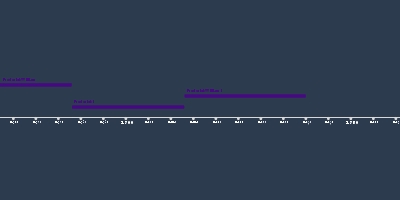r. Nikita Khrushchev (jan 1, 1958 – jan 1, 1964)
Description:
Nikita Khrushchev, leader of the Reformers, argued for major innovations. He openly spoke against Stalin. The USSR entered a period of genuine liberalization, or de-Stalinization. Khrushchev called for a relaxation of tensions with the West and a policy of “peaceful coexistence”. The government put more focus on consumer goods and agriculture and relaxed workplace controls. The standard of living went up and the USSR entered a limited consumer revolution. Writers and intellectuals pushed against Socialist Realism. Boris Pasternak pioneered this change with Doctor Zhivago, and was followed by those like Aleksandr Solzhenitsyn.Khrushchev also de-Stalinized foreign policy. Poland brought a new government to power that maintained the Communist system but with some tolerance and greater autonomy from Soviet control. In Hungary, Imre Nagy, a liberal, Communist reformer, was installed. There was hope for peaceful change until Nagy announced Hungary’s departure from the Warsaw Pact and asked the UN to protect its neutrality. Soviet troops crushed the revolution, killing around 2,700. A new Communist regime executed Nagy and sent thousands to prison. Many in the East Bloc decided that it was better to strive for internal reform without openly challenging Soviet control. The uprising in Hungary weakened communist support in the West. The West concluded that only war between the Blocs could overturn Communist rule, and Communist domination would continue to rule the satellite states.
By late 1962, opposition to de-Stalinization grew. Khrushchev’s foreign policy was ultimately unsuccessful.
Khrushchev tightened border controls in Berlin to stop Eastern citizens from moving west and ordered the western allies to evacuate the city within six months. The allies reaffirmed their unity in Western Berlin, and Khrushchev backed down. Ten, backed by Khruschev, East German authorities built a wall between East and West Berlin, in violation of existing access agreements. New U.S. president Kennedy did little to prevent its construction and held on to American presence in Berlin.
Khrushchev secretly ordered missiles with nuclear warheads installed in Fidel Castro’s Communist Cuba in 1962. When U.S. intelligence discovered missile sites under construction, Kennedy ordered a naval blockade of the country. After a tense diplomatic crisis, Khrushchev agreed to remove the missiles if America did not disturb Castro’s regime. Secretly, Kennedy also promised to remove missiles from Turkey.
Khrushchev’s already declining influence fell rapidly after the Cuban missile crisis, and he was displaced in a bloodless coup.
Added to timeline:
Date:
jan 1, 1958
jan 1, 1964
~ 6 years
